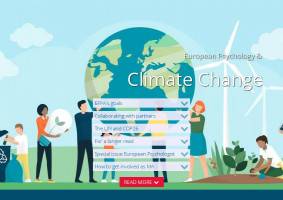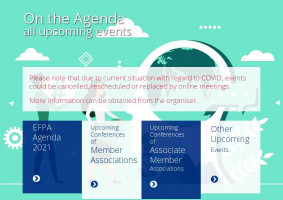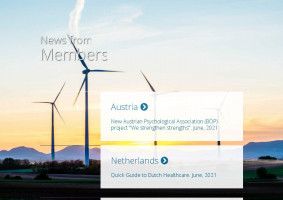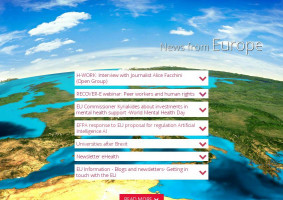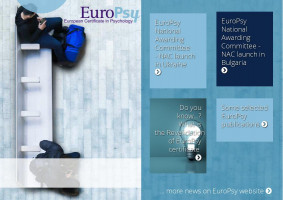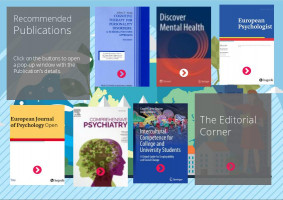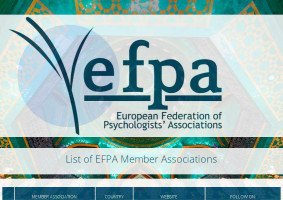READ MORE
_w384_h494_1.jpg)
The last weeks and months have been full of bad news. The summer, with its period of recovery, is a long time ago for all of us. And also this time was overlaid with bad news about earthquakes, storms, drought and forest fires. The effects of climate change can be felt everywhere and the suffering of people demands all our attention and professional competence. It is therefore only natural that we looked to the World Climate Summit in Glasgow full of hope. Many colleagues were there as experts to support the search for good solutions. And now the task is to ensure that the compromises reached are also implemented. Psychology certainly helps with that, too.
Psychology does not only make an important contribution to cope with emergency situations, to cope with traumatizing environmental disasters and to stay mentally healthy. Psychology also contributes to a better understanding of the meaning of such events for those who are not directly affected.
But psychology also draws attention to the fact that it is not just these events alone, but that others and not least the pandemic overlay such crises. We are not only concerned with mental health. It is also about the question of what it takes for people to change their behavior so that the burden on the environment is reduced. Psychology has an impact on all areas of life and work. And it does so across the entire lifespan.
As an association, we are committed to the United Nations' Sustainable Development Goals. They provide a good orientation and are an anchor for our cooperation. This is also clear in this new issue of our NewsMagazine. And there are good opportunities at our upcoming ECP 2022 in Ljubljana to demonstrate the contribution of psychology to a healthy climate and mental health in the face of the pandemic.
Weeks before we sent out the call for nominations of members of EFPA groups. We have now received new nominations for the EFPA groups, there are many changes and Head office is updating the groups. All the more we would like to take the opportunity here once again to thank all our volunteers in the groups for their participation and support! Your contribution cannot be appreciated highly enough!
Certainly for all of us: we hope to see each other again at least at the ECP 2022 Congress in Ljubljana, traditionally on site.
With heartfelt thanks and warm regards,
Yours,
Christoph Steinebach
EFPA President
EFPA Executive Counsil at ICP2020+
'European psychology collaborating for a better society, opportunities and challenges'
Presentations:
Challenging the identity of European psychology – Christoph Steinebach
What do the challenges facing psychology mean for how it is led? – Nicola Gale
Psychology education and training standards around Europe and EuroPsy – Eleni Karayianni
Regulation of the psychologist profession in Europe – Ole Tunold
Generation shifts in European Psychology leadership – Anna Leybina
EFPA Convenors meeting
On 28 May 2021 a virtual Convenors meeting took place where the preparation of EFPA’s General Assembly of 29 June 2021 was on the agenda. During this meeting the groups had the opportunity to showcase their reports and video’s that would be presented during the General Assembly and to discuss each other’s deliverables. Furthermore, proposals for how the work of the groups could be developed in the 2021-2023 mandate were discussed and also suggestions for how the working group pages might be developed in the context of EFPA’s new website.The next convenors meeting will be held virtually on Friday, November 26 2021.
A statement on the core requirements of education in (inter)cultural psychology for European psychologists
EFPA-Board on Cultural and Ethnic Diversity
Most European Psychologists are facing intercultural issues in their work and in their personal lives. For example, professionals might work across borders, be team members of a pluricultural team, provide mental health care for diverse people within diverse cultural socialisations; work with people who are between two or more cultural contexts or who are related to someone from another country – these are just a few examples where the intercultural will emerge in the daily life and work field of European psychologists. This cultural richness brings advantages (e.g., Chiabaka & Chumbow, 2018; Kang et al, 2018; Leung et al., 2008), but also challenges, such as cultural biases in most of the scientific theories, methods, and therapeutic or other practical settings (Roberts et al., 2020; Soto et al., 2018), and as racial inequality, because psychological research still mostly takes the White view for granted and needs to become reflected on (Roberts et al., 2020). European psychologists need to be increasingly equipped with, but may lack, (inter)cultural knowledge and cultural and anti-racist awareness.
(Inter)cultural Psychology is built around the notion that neither psyche nor culture could exist without the other (Gergen et al., 1996; Parker, 1994). On a daily basis, intercultural phenomena lead to uncertainty, stress, and misunderstandings (e.g., Chen, 2019; Hsu, 2017). Reflection on one’s own cultural underpinnings, knowledge about the mutual processes triggered by facing, imagining, or attributing “the strange”, and building up mental flexibility to provide adequate psychological support are needed (Soto et al., 2018). (Inter)cultural psychology provides research-based evidence, theories, and methods for mutual understanding as well as for enhancing knowledge and a reflective attitude (Civitillo et al., 2019; Parker, 1994).
Therefore:
- (Inter)cultural psychology needs to be recognised as a requirement of all psychologists in Europe nowadays and in the future.
- (Inter)cultural psychology needs to be systematically integrated into the study programmes of psychology for future European psychologists.
- (Inter)cultural psychology needs to be compulsorily integrated into all study programmes of psychology already on bachelor levels across all European countries. This is seen as important due to (a) preparing all psychologists (it is not only “a profiling master topic”); (b) keeping Bologna permeability for studying consecutively on the master level at another European university.
Integrating (inter)cultural psychology into the education of European psychologists will contribute to societies by (1) diminishing stress in psychologists and people more broadly, and (2) spreading knowledge in all kinds of work settings.
As a result of the required intercultural psychology curriculum, European psychologists will be able to
(a) apply the gained knowledge into their work;
(b) consider the impact of culture on the level of individuals and their mutual relationships;
(c) reflect on ethnocentric biases in theories, models, and test constructions.
EFPA will support the development of components for the integration into the curriculum of study programmes of psychology at bachelor level, according to EuroPsy standards. EFPA will also encourage the development of strategies for equipping practitioners and academic staff with intercultural knowledge and skills, so that the process of integrating Intercultural psychology can be initiated on all levels of education as soon as possible.
-
References
Chen, M. (2019). The impact of expatriates’ cross-cultural adjustment on work stress and job involvement in the high-tech industry. Frontiers in psychology, 10, 2228.
Chiabaka, E., & Chumbow, B. (2018). Advantages of bilingualism and multilingualism: Multidimensional research findings. In B. S. Chumbow. Multilingualism and Bilingualism, (pp. 15-36). London: IntechOpen.
Christopher, J. C., Wendt, D. C., Marecek, J., & Goodman, D. M. (2014). Critical cultural awareness: Contributions to a globalizing psychology. American Psychologist, 69(7), 645–655.
Civitillo, S., Juang, L. P., Badra, M., & Schachner, M. K. (2019). The interplay between culturally responsive teaching, cultural diversity beliefs, and self-reflection: A multiple case study.
Teaching and Teacher Education, 77, 341-351.Fasel, N., Green, E. G. T., & Sarrasin, O. (2013). Facing cultural diversity: Anti-immigrant attitudes in Europe. European Psychologist, 18(4), 253–262.
Gergen, K. J., Gulerce, A., Lock, A., & Misra, G. (1996). Psychological science in cultural context. American psychologist, 51(5), 496-503.
Hsu, C. F. S. (2017). Intercultural communication and relationships. In S. M. Croucher, Global perspectives on intercultural communication, (pp. 155-171), NY: Routledge.Kang, J. H., Kim, S. Y., Jang, S., & Koh, A. R. (2018). Can college students’ global competence be enhanced in the classroom? The impact of cross-and inter-cultural online projects. Innovations in Education and Teaching International, 55(6), 683-693.
Leung, A. K.-y., Maddux, W. W., Galinsky, A. D., & Chiu, C.-y. (2008). Multicultural experience enhances creativity: The when and how. American Psychologist, 63(3), 169–181.Parker, I. (1994). Reflexive research and the grounding of analysis: Social psychology and the psy‐complex. Journal of Community & Applied Social Psychology, 4(4), 239-252.
Roberts, S. O., Bareket-Shavit, C., Dollins, F. A., Goldie, P. D., & Mortenson, E. (2020). Racial inequality in psychological research: Trends of the past and recommendations for the future. Perspectives on psychological science, 15(6), 1295-1309.
Soto, A., Smith, T. B., Griner, D., Domenech Rodríguez, M., & Bernal, G. (2018). Cultural adaptations and therapist multicultural competence: Two meta‐analytic reviews. Journal of Clinical Psychology, 74(11), 1907-1923.
EFPA Standing Committee on Community Psychology partnership in the organisation of the 11th European Conference on Community Psychology Oslo.
June 2021, Oslo
The 11th European Conference on Community Psychology hosted a warm and inclusive event online – in Oslo this summer with the title: What can Community Psychology do for Europe and beyond? - Social capital, competencies, values and critical visions for future communities.
The European Conference on Community Psychology (ECCP) was organized by the European Community Psychology Association (ECPA) in collaboration with the Norwegian Psychological Association (NPA), The European Federation of Psychology Associations (EFPA) and partners. The conference was online in Oslo, Norway, from 3rd- 4th June, with two pre-conference workshops.
The conference was honoured with opening addresses by:
- the European Community Psychology Association ECPA – President Cinzia Albanesi,
- the Norwegian Psychological Association – President Håkon K.Skard, and the
- European Federation of Psychologists’ Associations EFPA – Vice-President Nicola Gale.
The European Conference of Community Psychology has a 25 year tradition of gathering colleagues from all corners of the world, to share different perspectives on contemporary problems. This was the first time that EFPA Standing Committee on Community Psychology were partners in organizing a European event. In preparing for the event, the SC worked closely with ECPA in the organizing committee and the scientific committee reviewing material. EFPA provided adminstrative and communication support for the organizers.
The conference presented an innovative platform to exchange Community Psychology among scholars, students, activists, volunteers and policy makers, and created room for professional, social and cultural meetings.
The main goal was to explore new online formats and ensure active participation and inclusion of paticipants. We used a combination of online pre-recorded videos, podcasts, online discussion forums, video-conferencing and workshops in order to provide a creative experience for the participants. Participats were given a virtual tour of Oslo, and were able to connect with colleagues from all over Europe on Instagram and Virtual discussion rooms. In these post- covid times we need to rethink normality, and find ways to transform communities to foster well being for all. How can we stay connected, and feel safe at the same time?
The main thematic tracs received around 100 reviewed scientific contributions covering topics within these areas:
• Sense of Community
• Participation and Inclusion
• Competencies and training
• Community resilience
• Environmental engagement for climate action
• Building trust and solidarity
• Community memory and regeneration
• Transforming communities and social change
• Partnerships for community development
• Migration justice
• Social inclusion and justice
• Gender equality.
Community Psychology has over the years oriented itself towards a systemic view of social and psychological problems, integrating individual, group, community and societal levels of analysis. This perspective is well designed to cope with the implications and analysis of climate change.
Highlights from the conference included keynotes on climate change by
Donata Francescato;
“Climate change action: what can community psychologists contribute as researchers, professionals and activists”.
You can listen to the live recording here
Donata Francescato is known in academia and the media for her work on sex roles, communes, and personal and organizational empowerment. Her work in community psychology led to the discipline being recognized in 1985 as a compulsory subject in Italian universities.
Isaac Prilleltensky
“Wellness, Fairness, and Worthiness: Psychosocial Foundations for the Common Good”
You can listen to the live recording here
Isaac Prilleltensky is the former dean of the School of Education and Human Development at the University of Miami, where he currently serves as vice provost for institutional culture. He was born in Argentina and has lived and worked also in Israel, Canada, Australia, and the United States. The topic of Wellness is closely linked to the climate issue. If we take care of ourselves, we take care of the environment around us.
Niki Harre:
“The environmental crisis: A people-focused systems approach.”
You can listen to the live recording here
Niki Harré is a professor in the School of Psychology at the University of Auckland. Her recent research projects have focused on sustainable communities and schools, core human values, positive youth development and political activism. In 2007 Niki edited, with Quentin Atkinson, the book Carbon Neutral by 2020: How New Zealanders Can Tackle Climate Change. Her two latest books are The Infinite Game: How to Live Well Together and Psychology for a Better World: Working with People to Save the Planet. She is the coordinator of a three course sustainability module available to Arts and Science students at the University of Auckland.
A pre-conference workshop was dedicated to the topic;
"Community resilience in times of pandemics"
The pandemic has turned our global community upside down, causing grief and trouble. At the same time, intuitive and creative moments surprisingly have been emerging all over the globe, which we started to collect and share in http://www.ECPA-online.com/new-bank/.
- How did the COVID-19 Pandemic change the system of relationships in our societies?
- How do we as communities shape these ambiguous changes within our culture?
By: Nicholas Carr,
Convenor of the EFPA Standing Committee on Community Psychology
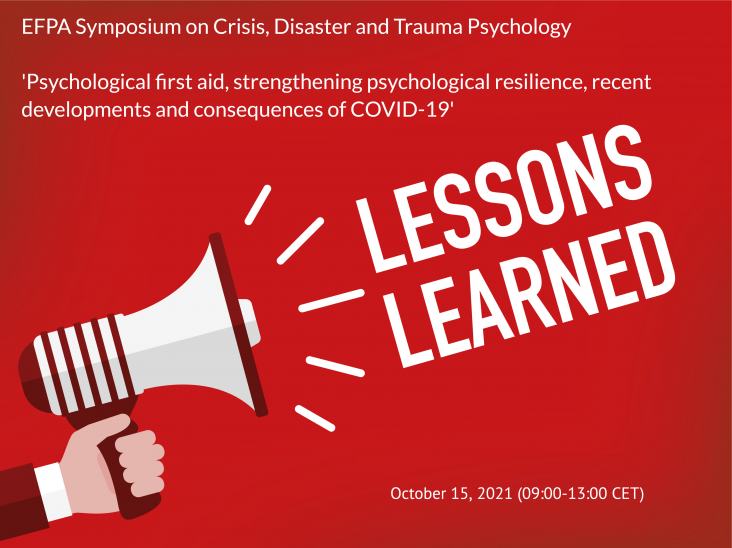
EFPA symposium on Crisis, Disaster and Trauma psychology hosted by the Serbian Psychological Association and the University of Belgrade – Oct 15, 2021.
The Symposium was organized in collaboration with the Serbian Psychological Association and the University of Belgrade, who was the host of this online Symposium as well.
The program offered an interesting diversity of topics in the field of crisis, disaster and trauma from different European countries like Serbia, Luxembourg, Czech Republic, Cyprus and the United Kingdom.
The symposium opened with a welcome word from the president of the Serbian Psychological Society Prof. Ivan Jerkovic.
Speakers came from the University Belgrade and from EFPA’s standing Committee Disaster, Crisis and Trauma Psychology: Magda Rooze, Štěpán Vymětal, Boris Kordic, Noreen Tehrani, Marc Stein, Anthi Loutsiou, Natasa Todorovic.
World Suicide Prevention Day, 10 September 2021:
'Creating Hope Through Action'
European psychology associations across the continent tacked the important issue of suicide prevention.
United Kingdom: Suicide prevention summit online (Sep 11-12, 2021)
Spain: Suicidal behaviour: improving the continuity of intervention to reduce gaps

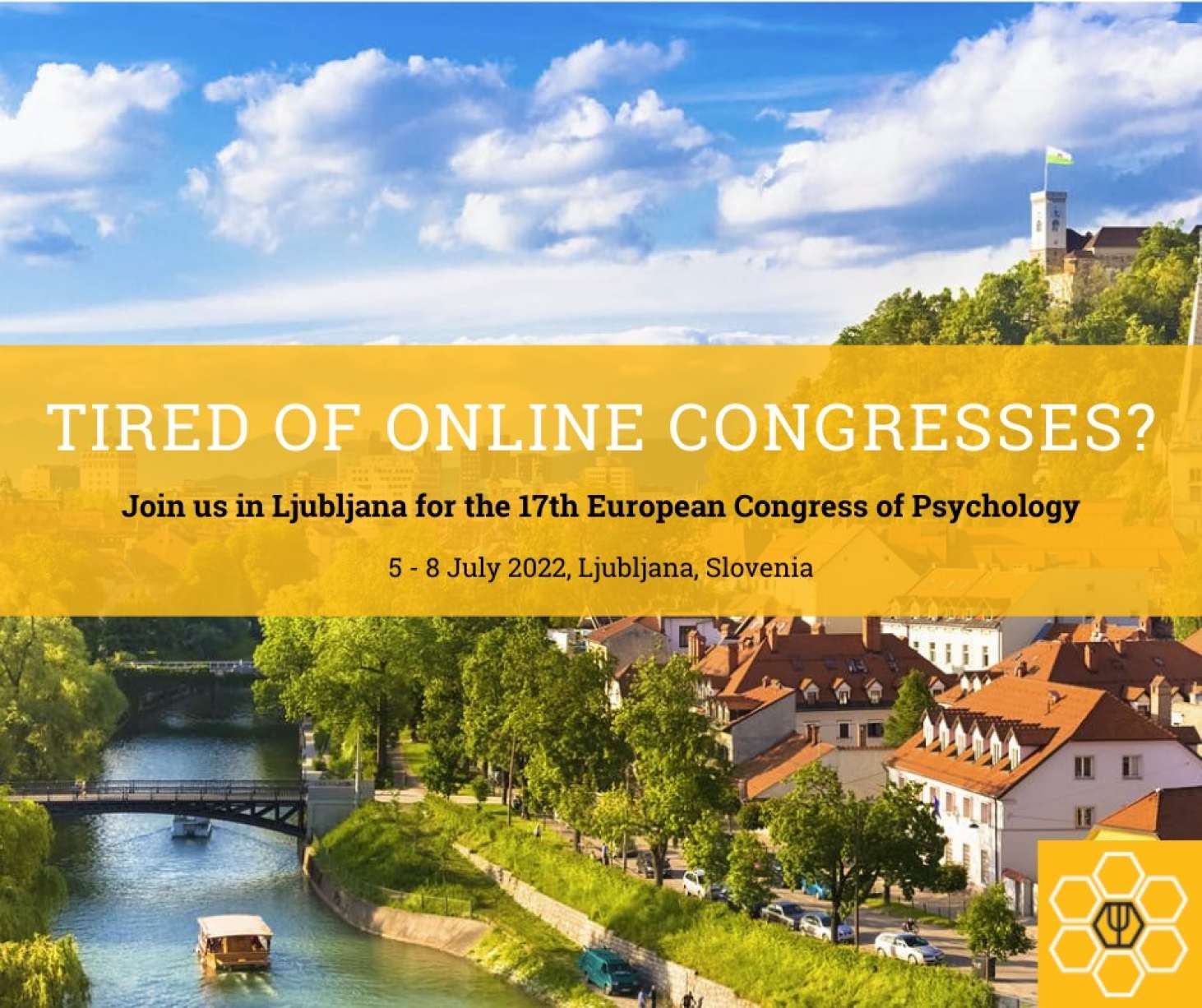

The call for the abstracts is open!
The Congress features more than 20 thematic tracks for you to choose from. All the information regarding the open call is already on our website. Please find the submission invitation here and guidelines on submission here.
Deadline for abstract submission is prolonged to December 20, 2021.
Notification of acceptance by the ECP 2022 Scientific Programme Committee will be made by 10 February 2022. All abstracts submitted by 10 November will be reviewed and get notification of acceptance by the end of 2021.


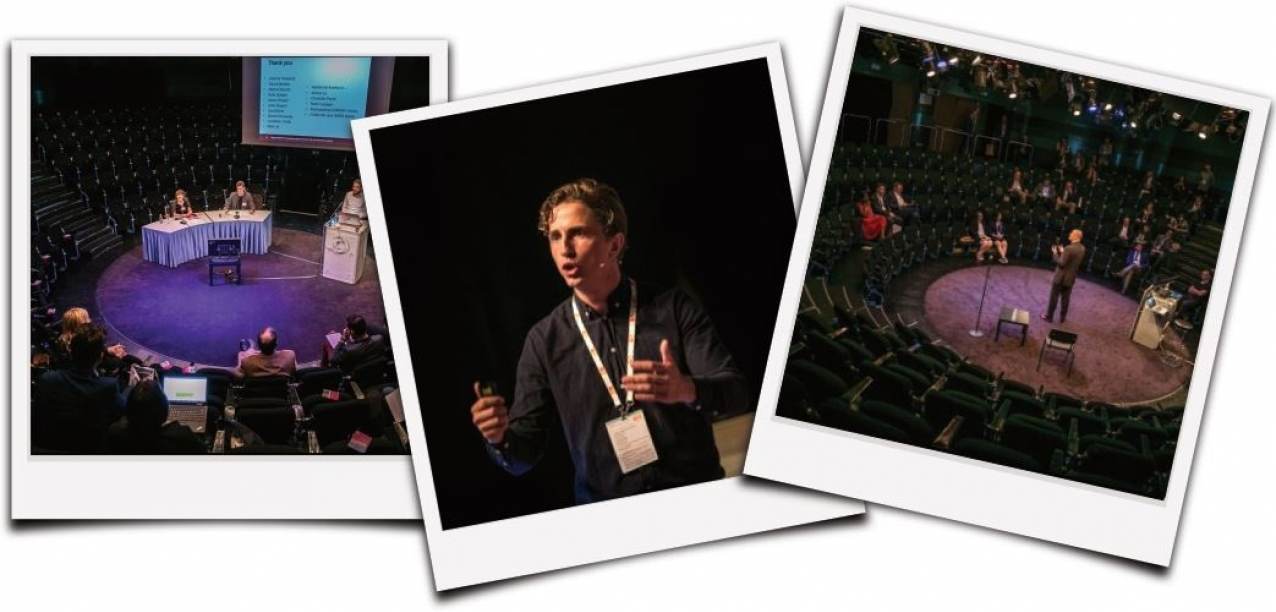


Follow us on

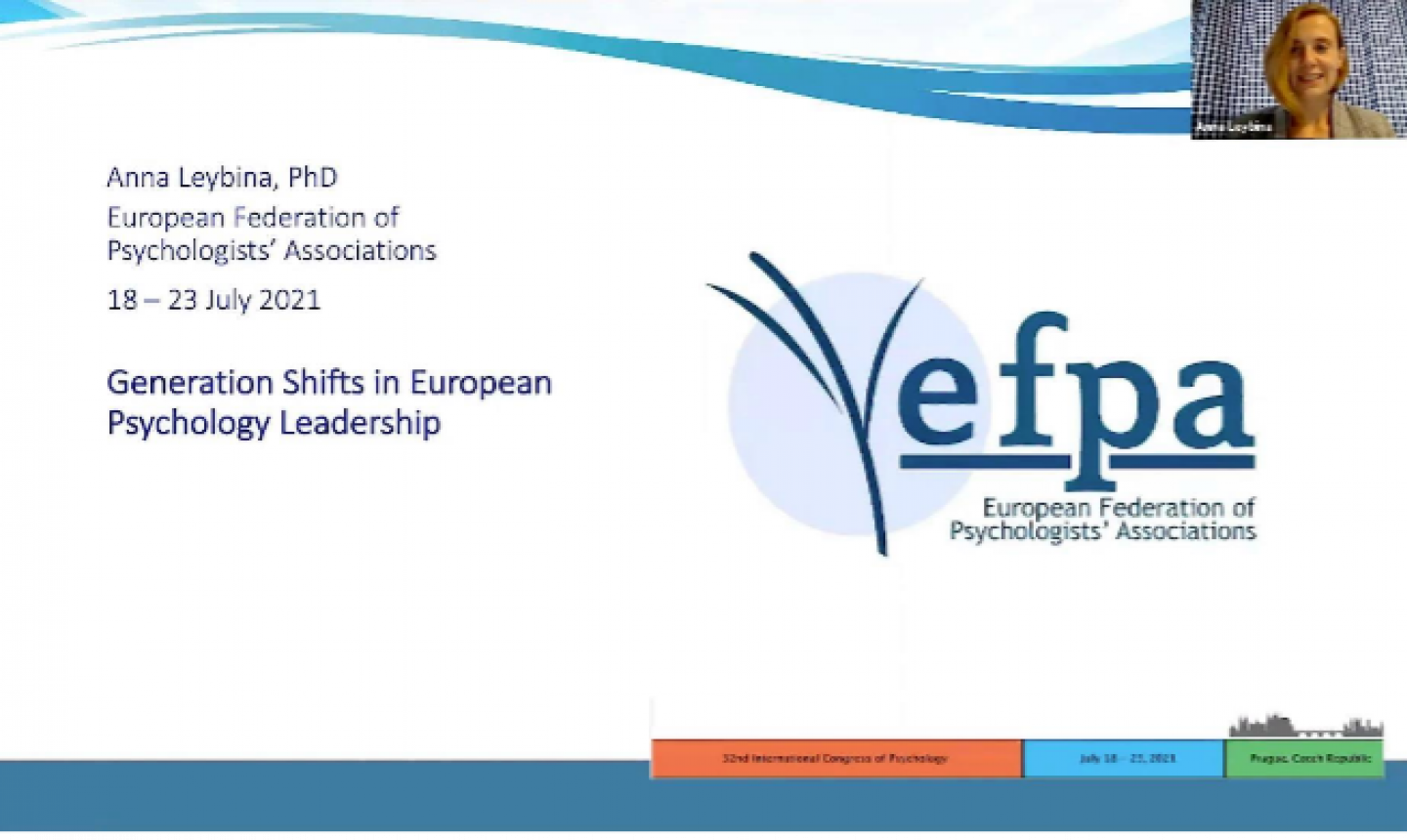
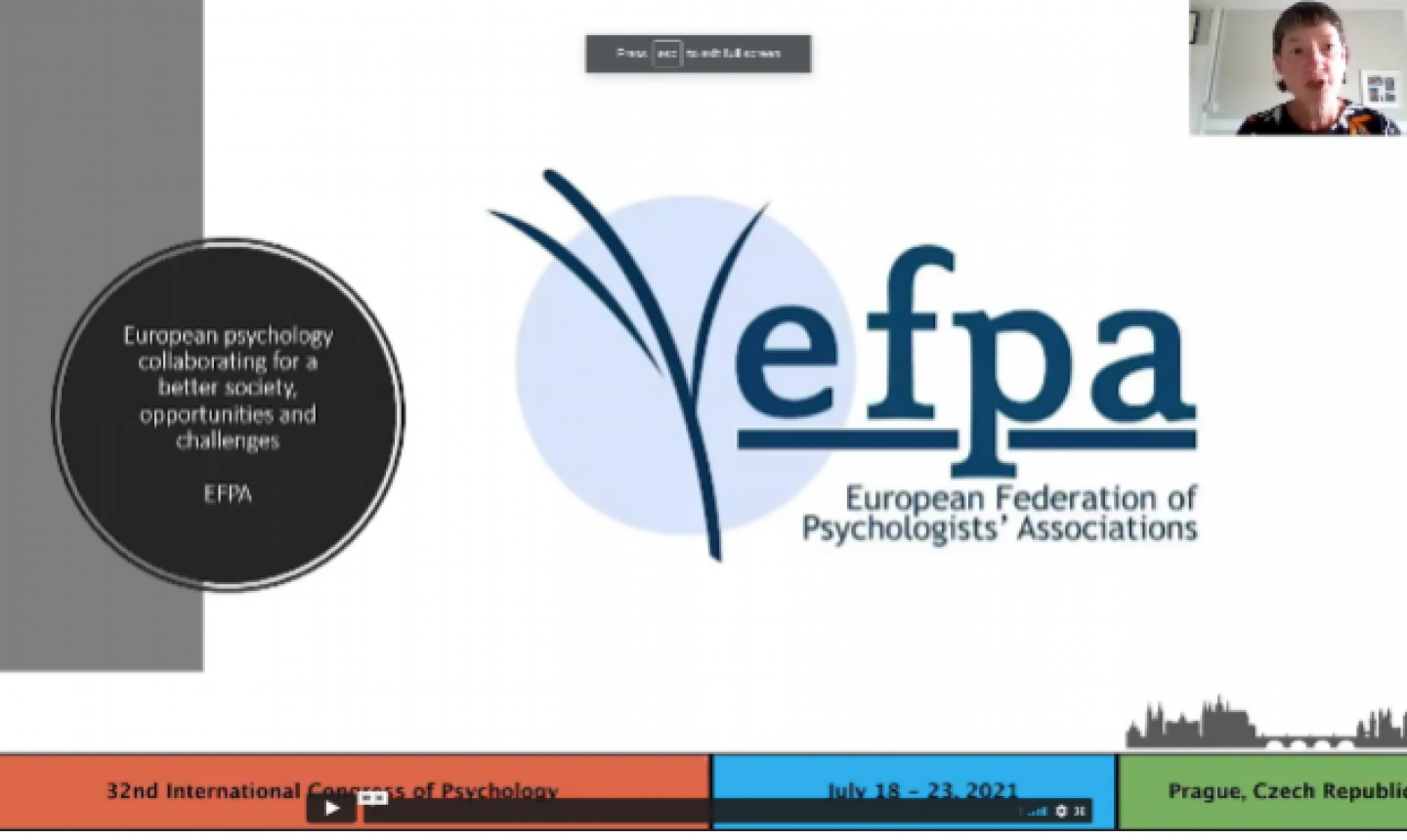
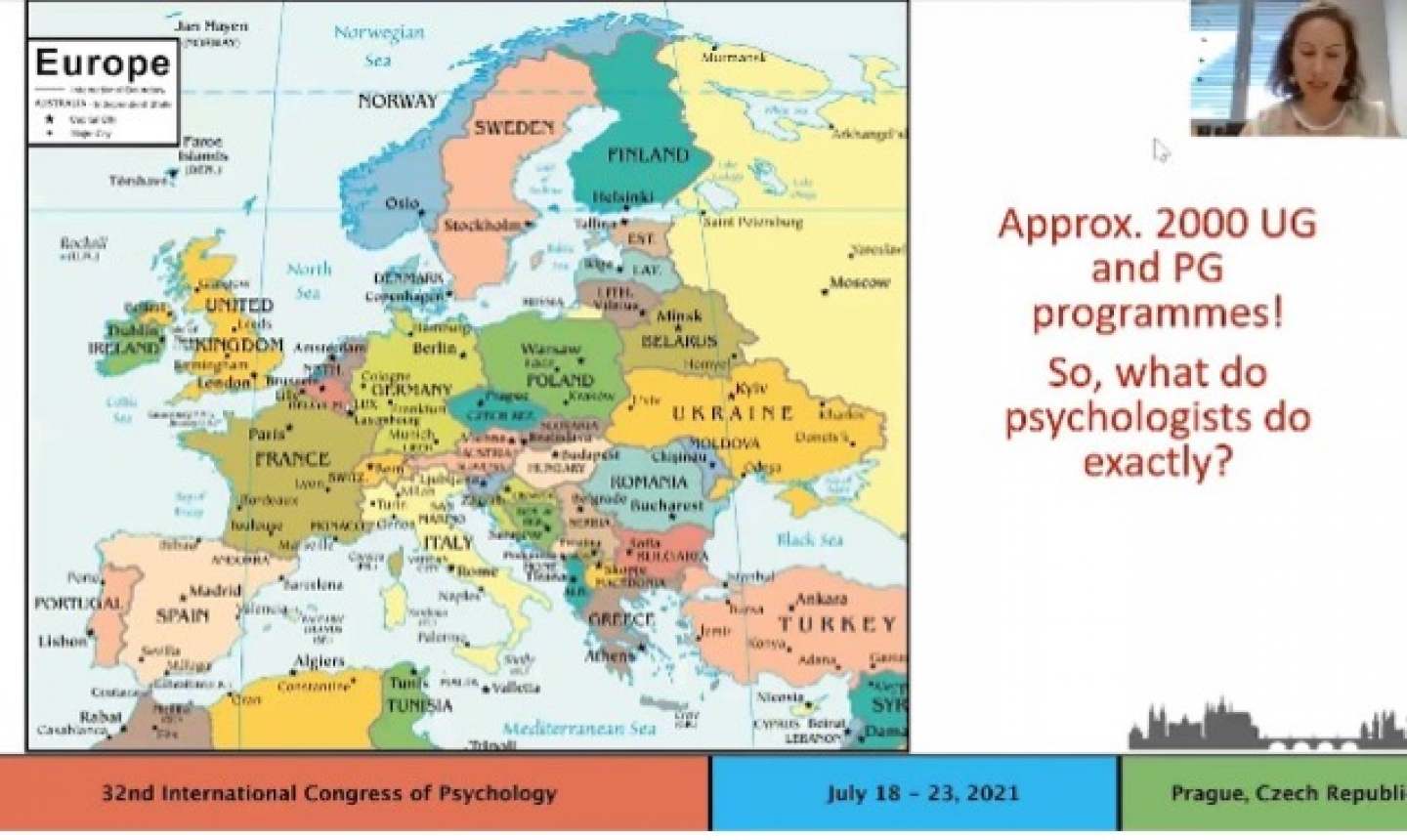
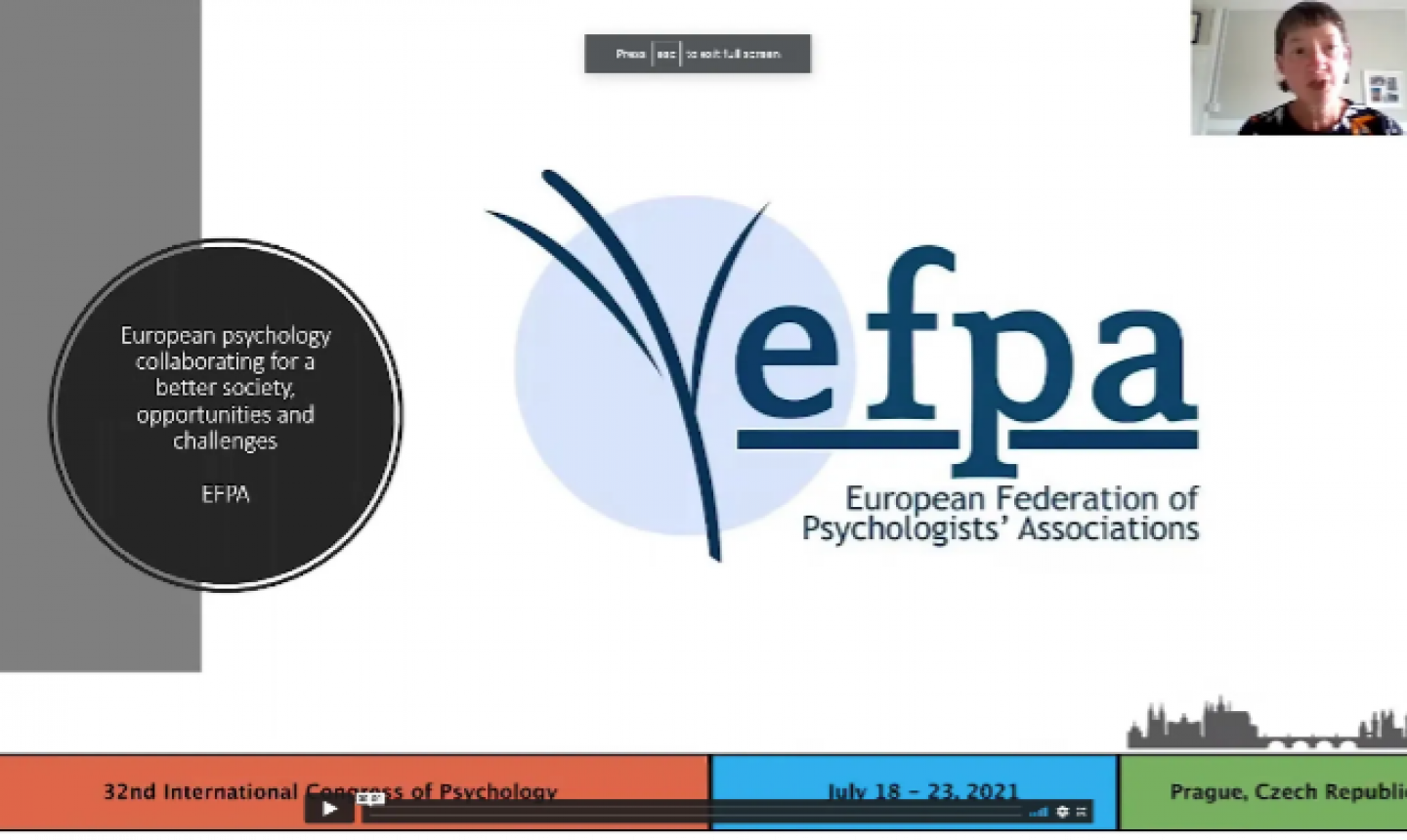
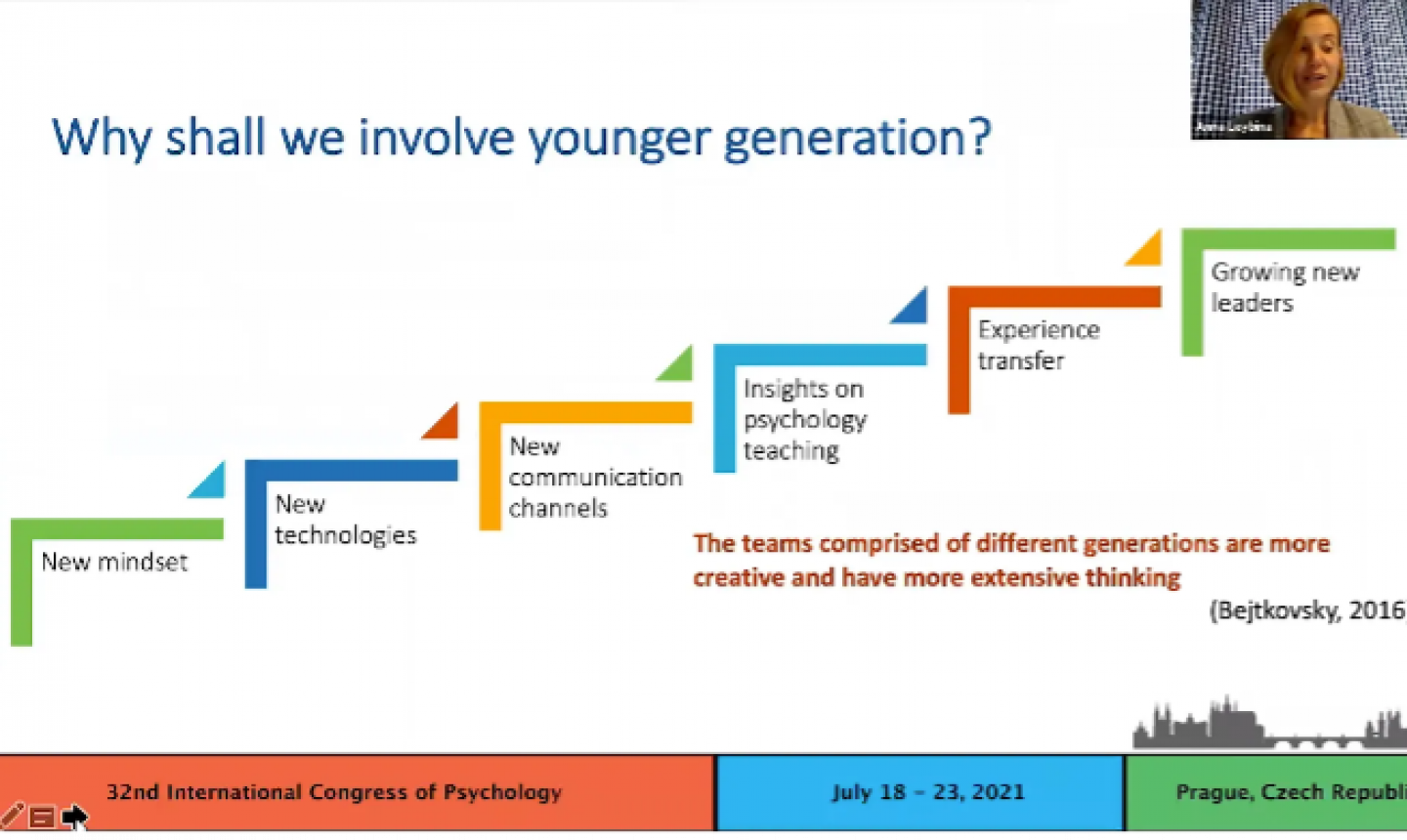
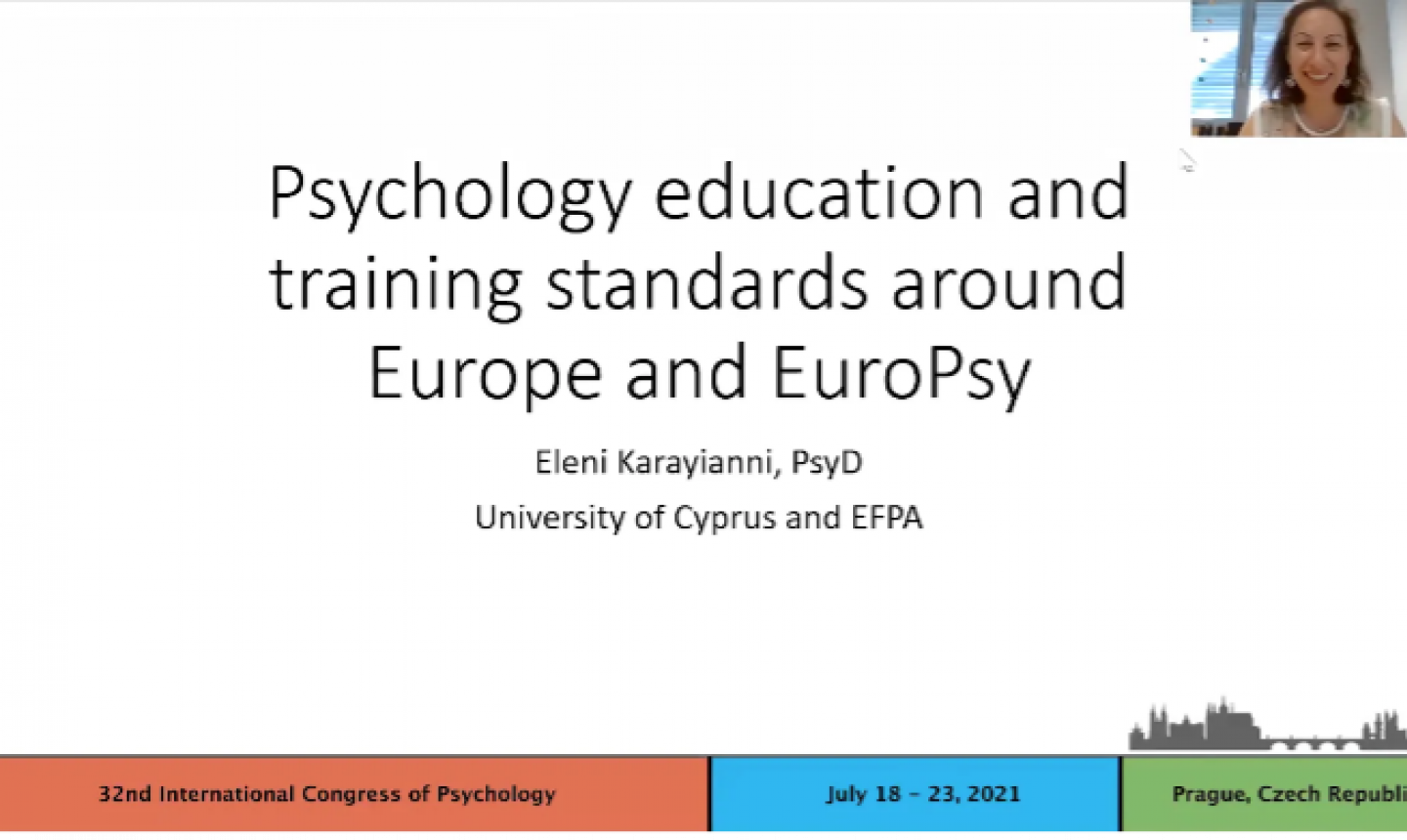
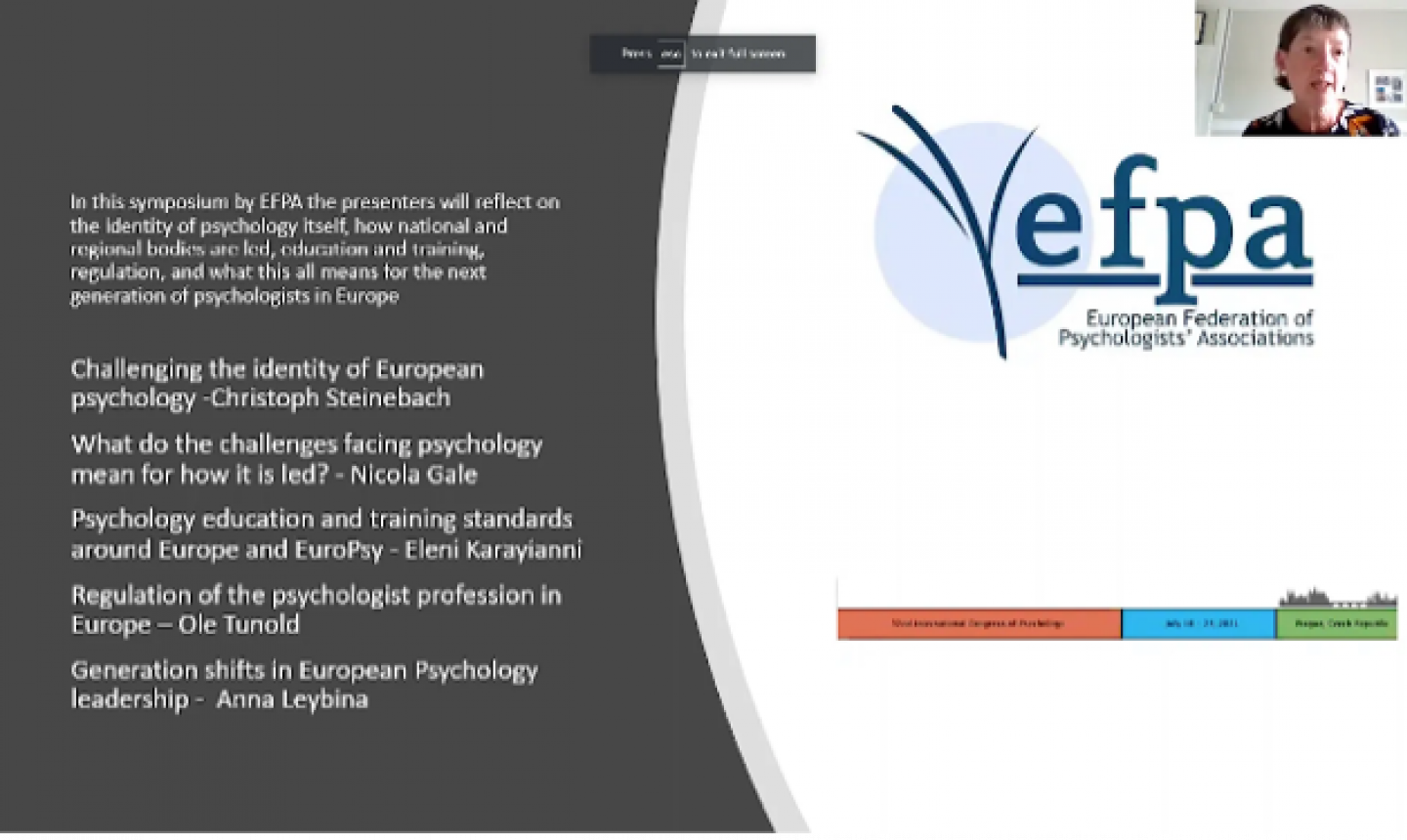
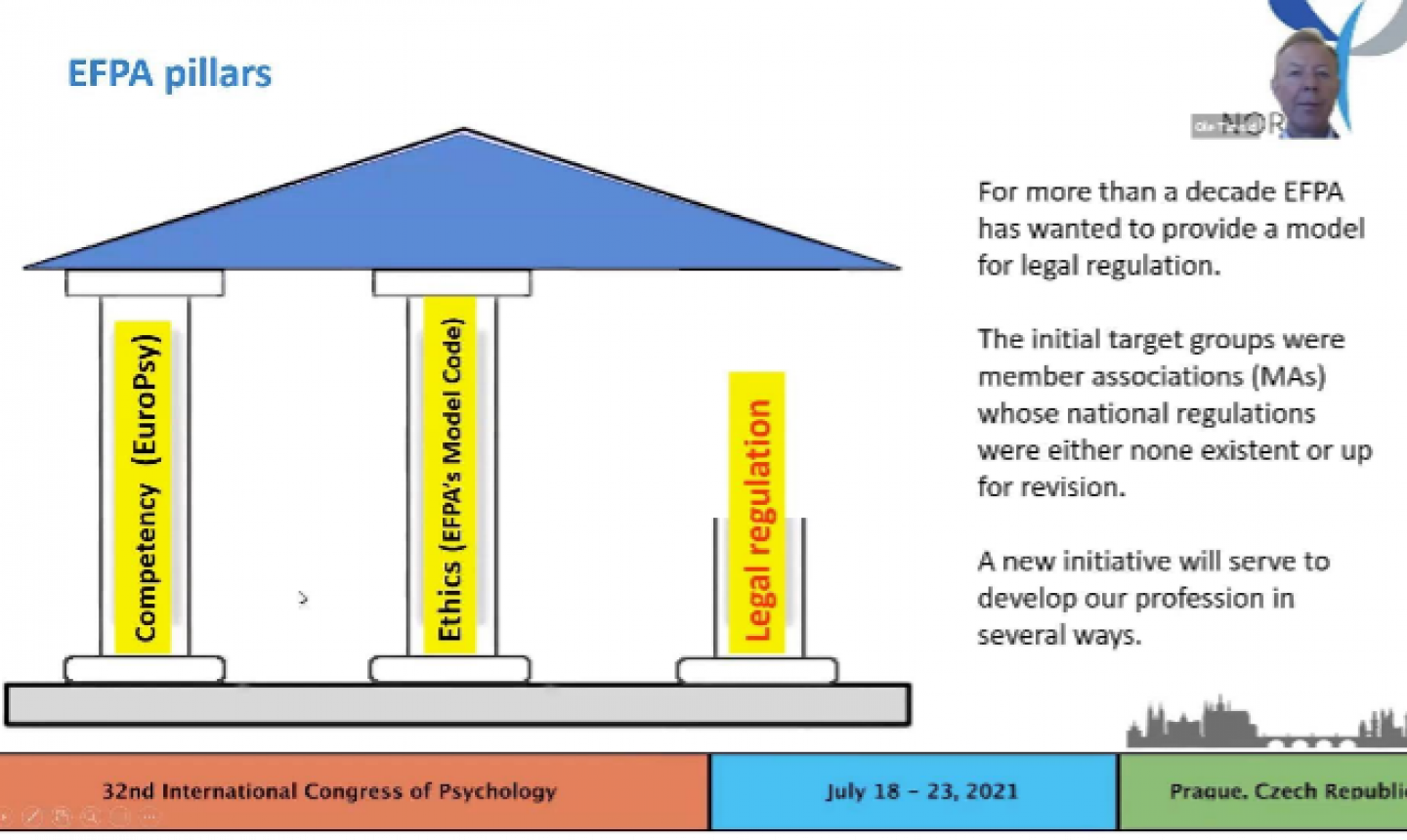
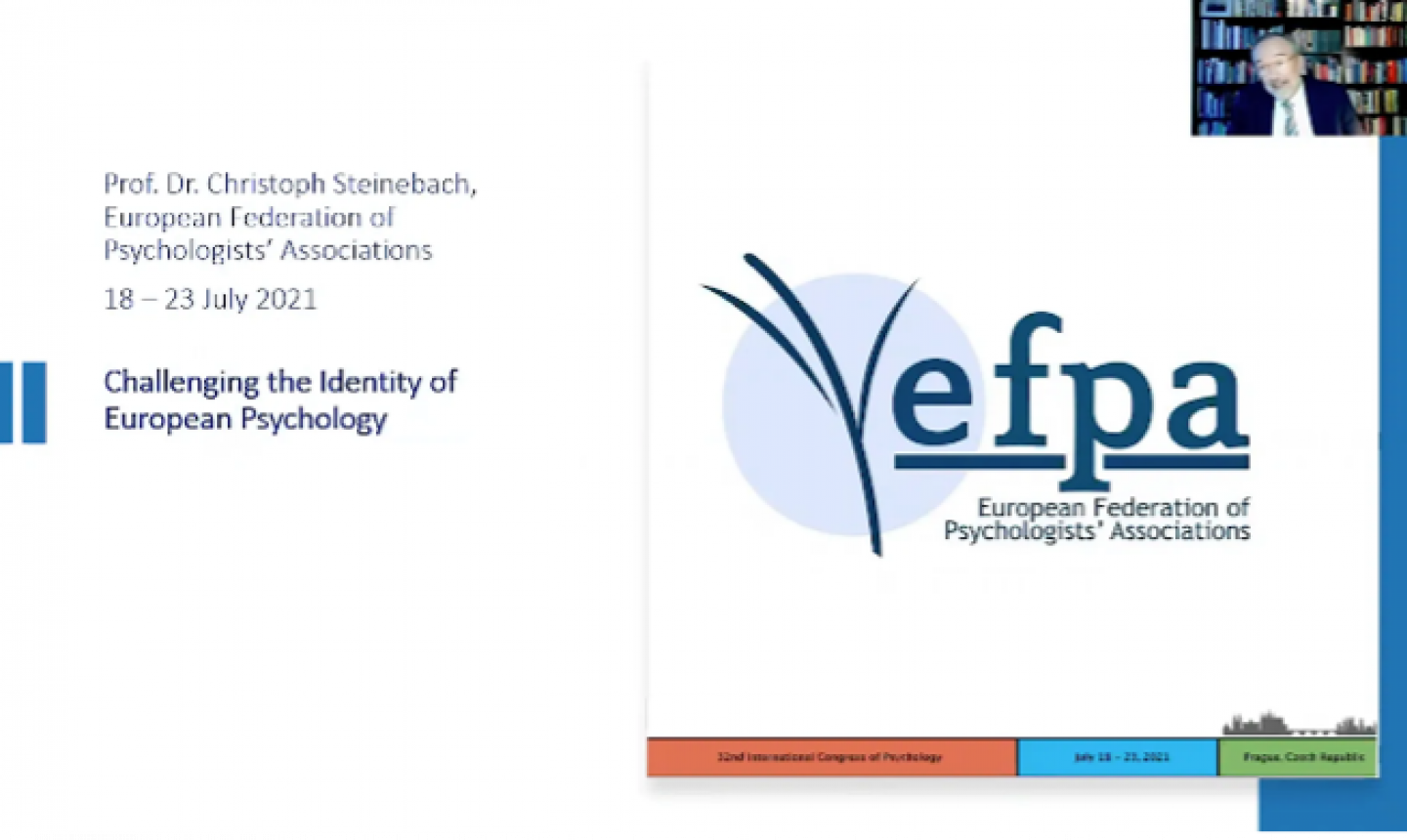
_w150_h150_1.jpg)
_w150_h150_1.jpg)
_w150_h150_1.jpg)
_w150_h150_1.jpg)



